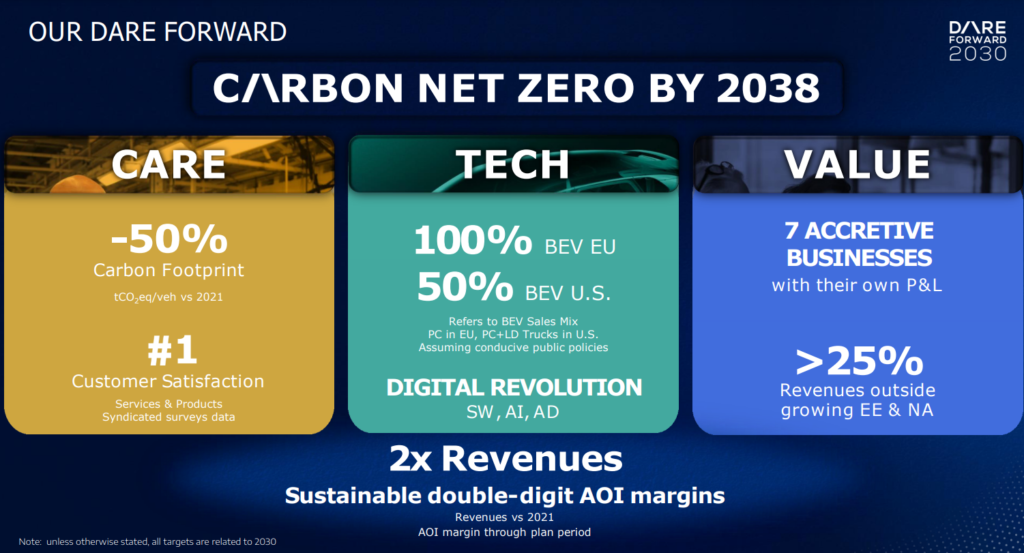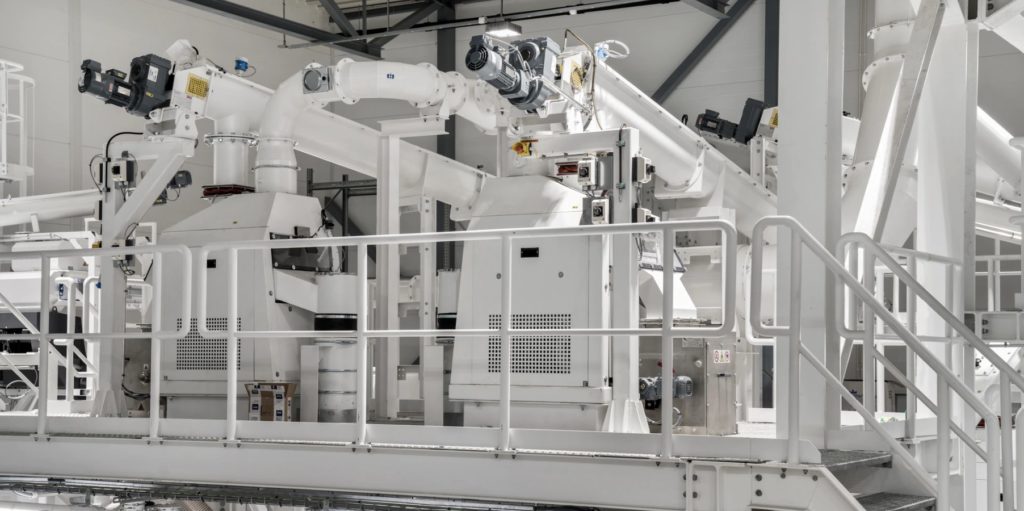Carmakers make mega investments in European electric-vehicle production
10 July 2022

The switch to electric vehicles (EVs) requires significant investments from carmakers as they upgrade their manufacturing sites, ready for an electrified Europe. This kind of spending is pivotal for companies to hit ambitious electrification targets, something which, in turn, will require substantial EV sales.
Carmakers are increasingly vocalising climate strategies, which include setting targets for EV sales, zero tailpipe emissions, as well as carbon reduction or neutrality.
Three European carmakers that have made recent announcements around their EV strategies include Mercedes-Benz, Volvo, and Stellantis. The companies are scaling up electric vehicle production to retain overall profitability and comply with upcoming regulations that will spell the end of new internal-combustion engine cars in the EU by 2035.
Mercedes-Benz EV push
Mercedes-Benz is in the middle of restructuring its strategy, now focussing on higher-priced luxury vehicles to drive profits. The manufacturer plans to upgrade its product portfolio and drop cheaper models as it plans to go all-electric by 2030, at least where market conditions allow.
Management and employee representatives recently reached a consensus on the company’s future production setup. The premium carmaker is adjusting manufacturing sites to cater for a new range of luxury EVs and to future-proof key locations. Overall, the German manufacturer aims to halve CO₂ emissions per passenger car by the end of this decade.
‘We are ready for the rapid scaling of electric-vehicle volumes,’ said Jörg Burzer, member of the board of management of Mercedes-Benz Group, production, and supply chain. ‘With the new production setup, we are further increasing our flexibility and efficiency and securing the future of our locations.’
Three German plants in Sindelfingen, Bremen, and Rastatt, and one Hungarian site in Kecskemét, will start production of new models in the top-end luxury, core luxury and entry-luxury segments from 2025.
As part of its 2022-2026 business plan, it is investing more than €2 billion in European production sites – a move that will help secure employment and mark a new era of rolling out next-generation electric platforms.
The company said its plants could produce vehicles with different drivetrains on a single production line. This level of flexibility offers a key advantage as it makes it possible to adjust production at short notice.
Mercedes-Benz also wants to keep electric-vehicle battery production local, saying this is a ‘key success factor’ for its electrification strategy. EV batteries for the company’s electric EQ models are supplied by a global battery production network on three continents.
Volvo expanding European production
Volvo is one of the most outspoken carmakers when it comes to electric vehicle production. The Swedish manufacturer will go all-electric by 2030 – and unlike Mercedes-Benz, there will be no exceptions.
The carmaker will build its third European manufacturing site in Slovakia, where it will build electric cars exclusively. The plant will be climate neutral, complementing Volvo’s other European sites in Belgium and Sweden. Volvo will invest a total of €1.2 billion in the Slovakian facility.
‘Expansion in Europe, our largest sales region, is crucial to our shift to electrification and continued growth,’ said Jim Rowan, chief executive at Volvo Cars.
Construction of the plant in Kosice is scheduled to start in 2023, with series production of next-generation, all-electric Volvo cars scheduled to debut in 2026. For Slovakia, this is a prime investment, bringing with it new employment opportunities that also help to raise the country’s competitive edge in the automotive world.
The site will be able to produce up to 250,000 cars per year and will provide several thousand new jobs in the region. It is by no means a small endeavour, as the Kosice plant will be Volvo’s first new European manufacturing site in nearly 60 years.
The company’s Swedish Torslanda plant was opened in 1964, while the Belgian factory in Ghent opened its doors a year later. Combined, the three locations can produce 600,000 cars per year, which will support Volvo’s wider annual sales targets. By 2025, the Swedish manufacturer wants to sell 1.2 million cars a year.
Stellantis €2 billion investment in France
Stellantis is also getting up to speed when it comes to electrification. The car giant has spent more than €2 billion on its French manufacturing sites since 2018, helping to transform key production plants there. The company is striving to reach a 100% passenger-car battery-electric vehicle (BEV) sales mix in Europe by 2030.

To date, the carmaker and various joint-venture partners have poured €150 million into the Trémery-Metz facilities to upgrade powertrain manufacturing for BEVs and hybrids. Trémery was once among the world’s largest diesel plants but has become Stellantis’ first facility to produce electric motors.
In Metz, Stellantis is focused on producing electrified dual-clutch transmissions, with the site expected to grow its annual-production capacity to 600,000 such gearboxes by 2024 for the brand’s hybrid portfolio.
‘Trémery-Metz is a prime example of how we are executing our manufacturing transformation, both in France, and across our global operations,’ said Carlos Tavares, Stellantis CEO. ‘We have now created a new global value chain with trusted partners, including five gigafactories, to support our global EV-battery strategy and propel our Dare Forward 2030 targets.’
As the manufacturer continues to invest in its electric future, it is working closely with unions and social partners in France, offering ongoing training and upskilling programmes for employees. But worries of job losses are real as electric vehicle production requires fewer working hours, something which could in effect lead to a trimmed workforce.
Earlier this year, unions warned that Stellantis could cut up to 1,400 jobs in France as it transforms sites to meet electrification targets. In Germany, Ford employees are also worrying about their jobs as the American manufacturer is restructuring operations to meet EV ambitions.



